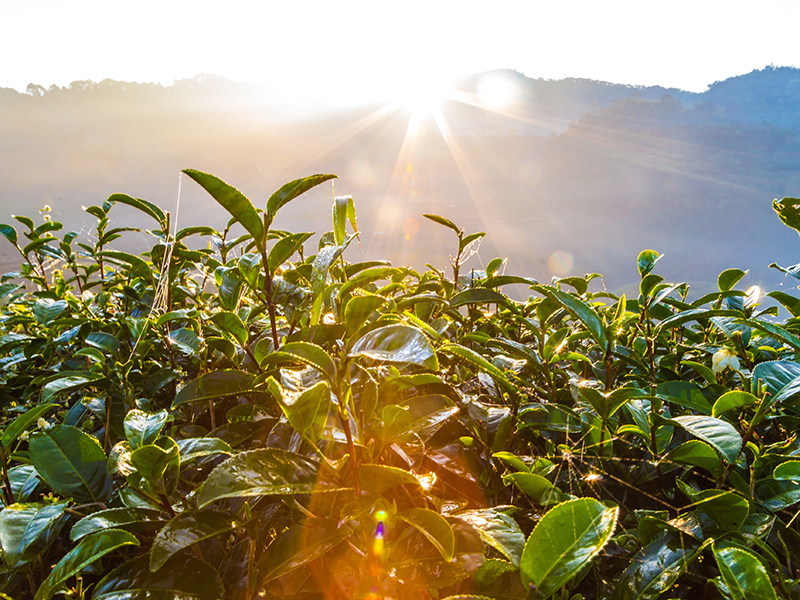
The Coca-Cola Company: Building a Climate-Resilient Value Chain| Case Studies | BSR
CASE STUDIES
The Coca-Cola Company: Building a Climate-Resilient Value Chain
MONDAY JUL 9, 2018
The Coca-Cola Company has been working to reduce emissions in its supply chain for years—including not only those associated with bottling, but also those associated with growing ingredients, producing packaging, and distributing and refrigerating products. As climate change impacts have begun to manifest around the globe, the 132-year-old company partnered with BSR to take this work a step further to examine what climate risk and resilience might mean for The Coca-Cola Company value chain.
The Challenge
From agricultural ingredients, like citrus and tea, to hyper-local distribution systems, The Coca-Cola Company supply chain is one of the largest and most complex in the world. Coca-Cola products are sold in more than 200 countries and territories, and each of those markets faces unique exposure and vulnerability to the impacts of climate change.
Mitigation efforts—those focused on reducing greenhouse gas emissions—are vital to any company’s climate strategy and critical to global efforts to avoid unmanageable climate impacts. As the impacts of climate change are increasingly felt around the world, however, it has become clear that simultaneous efforts are necessary to increase adaptive capacity and build resilience.
“Resilience” is defined as “the capacity to recover quickly from difficulties.” In the context of climate change, resilience is the ability of a system (such as a bottling plant, distribution network, or supply chain) or community to rebound following a shock such as a natural disaster. Building resilience requires not only recognizing potential hazards like extreme weather events, but also understanding the underlying vulnerabilities that may affect recovery from these potential disasters. For example, insufficient infrastructure can reduce a community’s capacity to rebound following a disruption like an extreme weather event, as can poverty or gender inequality.
After years focused on climate mitigation and water stewardship, understanding climate risk and resilience was a natural next step for Coca-Cola.
Our Strategy
BSR partnered with Coca-Cola to begin building the foundation for a more resilient company that is better able to anticipate, avoid, accommodate, and recover from climate risks in the future. At the outset, we identified seven markets—Argentina, Brazil, China, India, Kenya, Mexico, and the United States—and two commodities—coffee and tea—to serve as proxies for the full Coca-Cola value chain. For each of these markets and commodities, we explored exposure to major climate hazards in the context of underlying vulnerabilities, such as rapid urbanization, at-risk populations, food and economic insecurity, and insufficient infrastructure.
Using this analysis, a benchmark of climate resilience activities in the food and beverage sector, Coca-Cola’s existing risk mitigation strategy, and insights from internal company interviews, we developed a framework for identifying and prioritizing climate-related risks. We then mapped Coca-Cola’s existing programs and initiatives to high-priority risks and outlined an approach for expanding this work further across the company’s major business units.
Our Outcomes and Impact
The climate resilience framework we developed aims to integrate resilience into Coca-Cola’s existing strategy, risk management, and sustainability systems. The framework is designed to connect and amplify The Coca-Cola Company’s efforts in empowering women, protecting the climate, and sustainably sourcing ingredients, as well as in water leadership and community development. Over time, we hope to see the framework used to help Coca-Cola create a more resilient value chain, enabling the company to confidently source responsibly cultivated ingredients, withstand or promptly recover from climate-related impacts, identify and reduce climate risks, and contribute to building value chain and community resilience where Coca-Cola is produced and sold.
We hope that these leading-edge efforts will inspire other companies, as well as their partners in the public sector and civil society, to take a more holistic look at climate risk in their value chains and communities and identify opportunities to build adaptive capacity and resilience.
Lessons Learned
Undertaking this work with Coca-Cola allowed us to translate what we know about climate risk and resilience into the context of a global supply chain. Here are a few suggestions for companies interested in exploring climate risk and resilience in their value chains:
- Start small: Begin with a selection of facilities, locations, or products that represent important aspects of your business. This will allow you to identify the most useful and important data points before scaling your approach across the organization.
- Integrate into existing systems: Rather than approaching climate risk and resilience as a new, standalone exercise, consider integrating climate considerations into existing risk management and/or sustainability systems.
- Appreciate both the global and the local: Much like water stewardship, managing climate risk and building resilience is both a global and intensely local challenge. While some tenets and approaches can be broadly applied, individual interventions must be customized and reflect on-the-ground realities.
Learn more about our work on climate-resilient supply chains.
#Climate Change, #Consumer Products, #Food Beverage and Agriculture, #Supply Chain
YOU MIGHT ALSO LIKE
REPORTS
The Business Role in Creating a 21st-Century Social Contract
The time is now for an overhaul of the social contract to address 21st-century realities and needs. A new social contract can deliver long-term value creation that enables economic security and mobility, is genuinely inclusive, and addresses challenges such as the transition to clean energy and the emergence of a digital world.
BLOG
The Case for SEC-Mandated Climate and ESG Disclosure
In response to the SEC's interest in taking steps to require climate disclosure, we discuss crucial steps that the SEC should enable to provide consistent, comparable, and reliable information that will strengthen investors’ ability to make decisions, provide incentives for business to generate long-term value, and lead to a market economy that delivers on society’s greatest needs.
BLOG
China’s 14th Five-Year Plan: Broad Insights for Investors
What does China's 14th Five-Year Plan mean for investors? We discuss five ways investors can seek opportunities.
BLOG
Gender Equity in the Just Transition and the Shift to Green Jobs
As the energy transition becomes a reality, it is essential to build a shared understanding of what a sustainable, green workforce looks like and how women and men can benefit equally from this transition.
BLOG
Modernizing the Social Contract in 2021: Five Developments for Business to Consider
COVID-19 has shown—in a tragic way—how interconnected the world is. All the events of the past year and a half have also reinforced and deepened the urgent need to redefine the social contract and the key role business must play in that effort.
BLOG
Inside BSR: Q&A with Melissa Do
This month's Inside BSR features Melissa Do, an Associate based in our San Francisco office, and discusses her sustainability journey as well as her work on climate change.
BLOG
China’s Climate Goals, The 14th Five-Year Plan, and the Impact on Sustainable Business
How will China's 14th Five-Year Plan steer the country's development for the next five years, and what do its environmental and climate considerations mean for business?
BLOG
Leaders Summit on Climate: Forward Progress to the Net Zero Economies We Need
For the first time since the Paris Agreement, the Leaders Summit on Climate kicked off a new round of stronger targets from major emitters. Here's what this means for business.
ABOUT US
BSR™ is an organization of sustainable business experts that works with its global network of the world’s leading companies to build a just and sustainable world. With offices in Asia, Europe, and North America, BSR™ provides insight, advice, and collaborative initiatives to help you see a changing world more clearly, create long-term business value, and scale impact.
OUR GLOBAL OFFICES
- Copenhagen
- Guangzhou
- Hong Kong
- New York
- Paris
- San Francisco
- Shanghai
- Tokyo
ELSEWHERE
SUBSCRIBE TO OUR LIST
SIGN ME UP
ABOUT US
HOW WE WORK
- OUR FOCUS
- Areas of Expertise
- Industry Focus
- OUR SERVICES
- Sustainability Consulting
- Collaboration
- Membership
- Research
OUR INSIGHTS
EVENTS
CAREERS
BSR WEB PROPERTIES
- Clean Cargo | Sustainability in the Cargo Shipping Industry
- Global Impact Sourcing Coalition | Build a More Inclusive Global Supply Chain
- Healthy Business Coalition | Good Health is Good Business
- HERproject | Empowering Women in the Global Supply Chain
- Maritime Anti–Corruption Network
© 2021 Business for Social Responsibility™ | The Business of a Better World™ | Data Protection and Privacy Policy | Cookie Policy | Terms of Services | Contact










